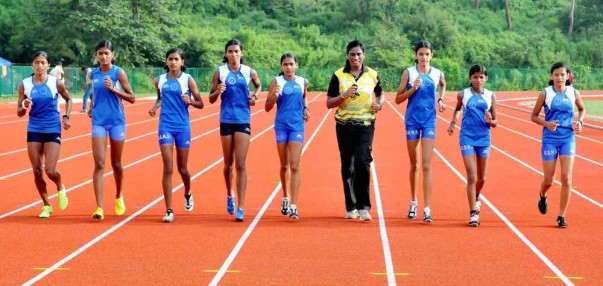- The Modi government is aggressively promoting sports infrastructure and facilities but the culture of sports is yet to be democratized in the country.
- Prime Minister Narendra Modi took matters into his own hands and constituted a task force to prepare an action plan for the next three Olympics Games viz. Tokyo 2020, Paris 2024, and Los Angeles 2028.
- This year, the union sports budget received over double-digit increase, from Rs 2,757 crore to Rs 3,062 crore rupees.
India’s first Prime Minister, Jawaharlal Nehru, fashioned himself as a socialist. But one socialist idea of Sports schools, that was prevalent in countries like the Soviet Union, China, East Germany in the 1940s and 1950s, failed in India.
Many legendary athletes, such as Nikolai Andrianov, Nellie Kim, Alexander Popov, Viktor Krovopuskov, Vladislav Tretiak, Valeri Kharlamov, Anatoly Alyabyev, and Sergey Bubka, made the Soviet Union a dominant sports power in the post-World War II. This achievement came from sports schools. Also, China’s recent success in the Olympics and other sports events owns to sports schools.
However, despite fashioning its economic model after the Socialist countries and adopting their worst trait, the Indian government failed to adopt some good practices of those regimes.
The Modi government is aggressively promoting sports infrastructure and facilities but the culture of sports is yet to be democratized in the country. And the reason behind this is the lack of promotion of sports at the school level.
Even if the government does not want to promote the Soviet Union or Chinese-style sports schools because some practices in these institutions are said to be abusive towards children, the government must take steps to popularize non-cricket sports such as athletics, wrestling, weightlifting, badminton, tennis at schools.
This year, the union sports budget received over double-digit increase, from Rs 2,757 crore to Rs 3,062 crore. “India has paid tremendous attention to the sports segment in this budget and increased the allocation as well. We must not forget that a maximum of our sportspersons belong to the family of farmers. We have also increased the budget for Khelo India Abhiyaan. The sports budget has witnessed a jump of more than three times over the last seven years, and this will also benefit our youth,” said Prime Minister Modi on an increased sports budget.
After the downfall in the Rio Olympics where India managed to win only four medals (Two gold, One silver, one bronze), Prime Minister Narendra Modi took matters into his own hands and constituted a task force to prepare an action plan for the next three Olympics Games viz. Tokyo 2020, Paris 2024, and Los Angeles 2028.
The task force aimed at preparing a strategy for the improvement of the facilities, selection norms, and better training facilities. The task force includes the likes of national badminton coach Pulella Gopichand, Olympic gold medalist Abhinav Bindra, former India hockey captain Viren Rasquinha, among other foreign experts.
The biggest development towards the improvement in the Indian sporting scene has come through the “Khelo India” program. The official website of the program states that it has been introduced to “revive the sports culture in India at the grass-root level by building a strong framework for all sports played in our country and establish India as a great sporting nation.”
The “Khelo India” program has been working wonders for India. It was launched with a budget of Rs. 97.52 crore in 2016. By the end of Financial Year 2020, it went through a nine-fold increase and reached a whopping Rs. 890.92 crore. First National Para Games under Khelo India Program was held in 2018 in Bengaluru.
These initiatives by the government have yielded good results but India is still not even in the top 20 as far as Olympic medals are concerned.
Thus, to democratize the sporting culture and take this to the roots, sports must be made part of the regular curriculum (not the much-maligned extra-curricular activities) and its marks should be counted in board exams.
Unless the sports culture prevails in schools, the country cannot achieve China’s or the United States’ level of success.
